Every single search query, every streamed song or video and every email sent, billions of times over all around the world – it all adds up to an ever-increasing global demand for electricity, and to rising CO2 emissions too. Our increasing reliance on digital tools has an environmental impact that’s becoming increasingly harder to ignore.
And with emeregence of AI models and them growing bigger, their demand for computing is outpacing improvements in hardware efficiency. Some of the excitement over AI’s recent progress has shifted to alarm, In a study last year, researchers at the University of Massachusetts at Amherst estimated that training a large deep-learning model produces 626,000 pounds of planet-warming carbon dioxide, equal to the lifetime emissions of five cars
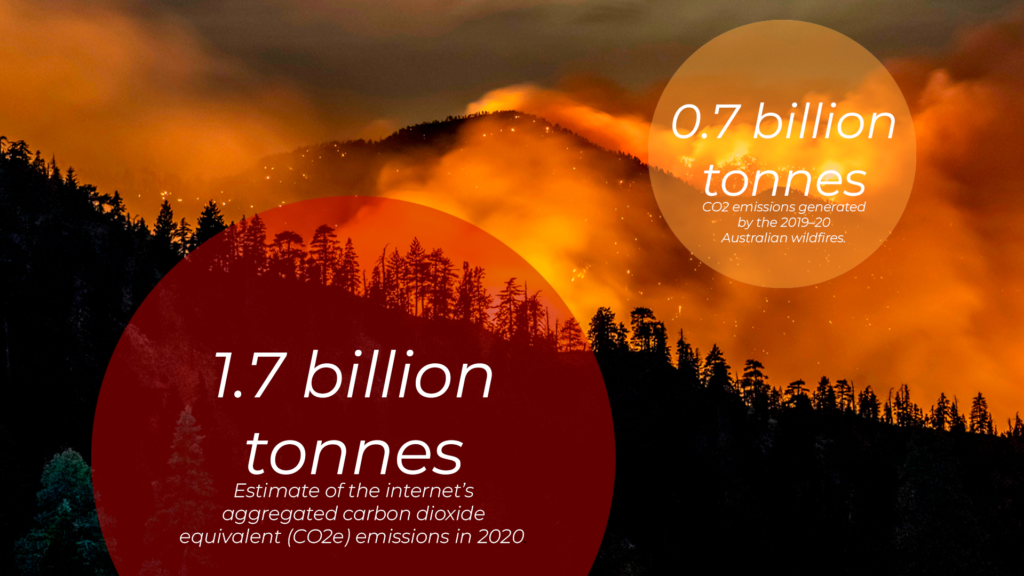
Digital technologies impact climate change when they are built (45%) and when they are used (55%). While there is more and more data about the “build” part (device manufacturers routinely publish fact sheets about the carbon emitted during the production process), estimating the “use” part is still a challenge.
Challenges of Digital Footprint:

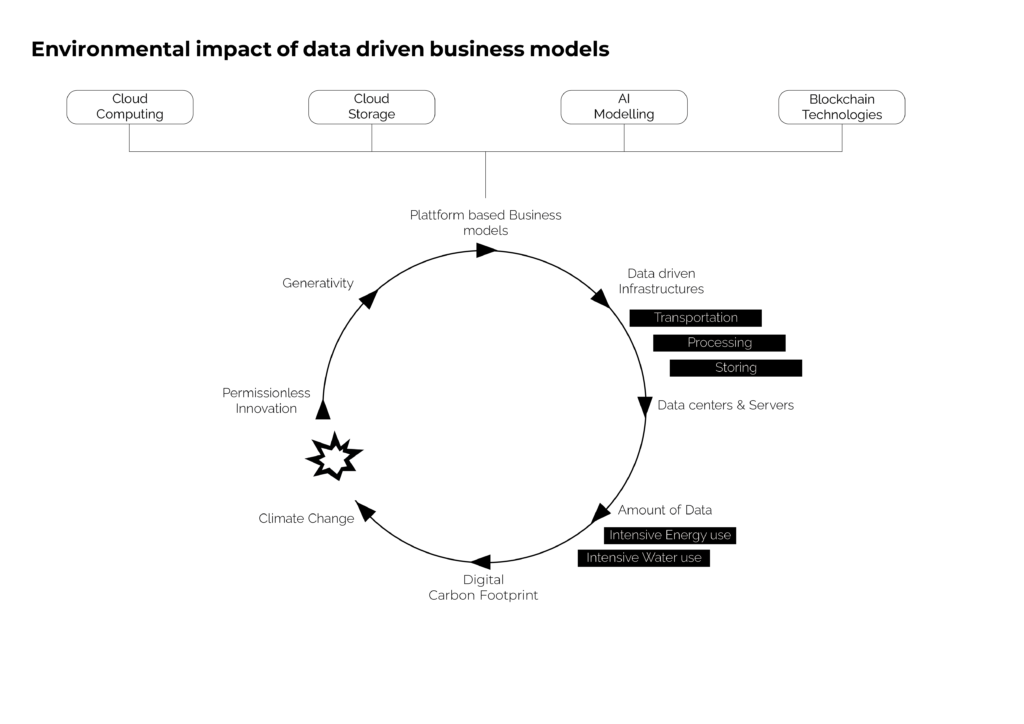
Ajuntament de Barcelona: The city of Barcelona aims to become a European leader in the digital sector as well as becoming a green smart city. By creating a framework for evaluation and accountability for the generation of digital carbon footprint of the private sector and especially ICT companies on the one hand – and providing green infrastructure and incentives for highly efficient local ICT’s and data centers on the other will reduce local and non-local carbon footprint, attract digital talent and manifest Barcelona’s role as a pioneer digital city.
Data Centers: In an increasingly digital economy, data centers, and digital infrastructures wheredata is stored and processed on a largescale, are becoming essential pieces for companies and cities. Barcelona has positioned itself as a strategic location for data centers.
Data driven companies (ICT): Catalonia has growing number of ICTcompanies, a quarter of all ICT companies inSpain, which generate 20% of the nationalturnover in the ICT sector. Almost 70% ofICT companies are located in the provinceof Barcelona.
Green Infrastructure: Recognizing the need to change the energy model to a clean, carbon-neutralmodel based on energy efficiency and renewable energies. Barcelona was the first European city to develop andimplement a Solar Thermal Ordinance (STO).The STO has been integrated into theoverarching political and planning framework for climate change mitigation.Within this framework, Barcelona aims toachieve energy self-sufficiency in the longterm through the promotion of energyefficiency and the use of renewable energy resources.
Main Objective:
Create policy framework for measuring and tracking data and energy consumption through digital carbon footprint accountability.
Strategy Overview:
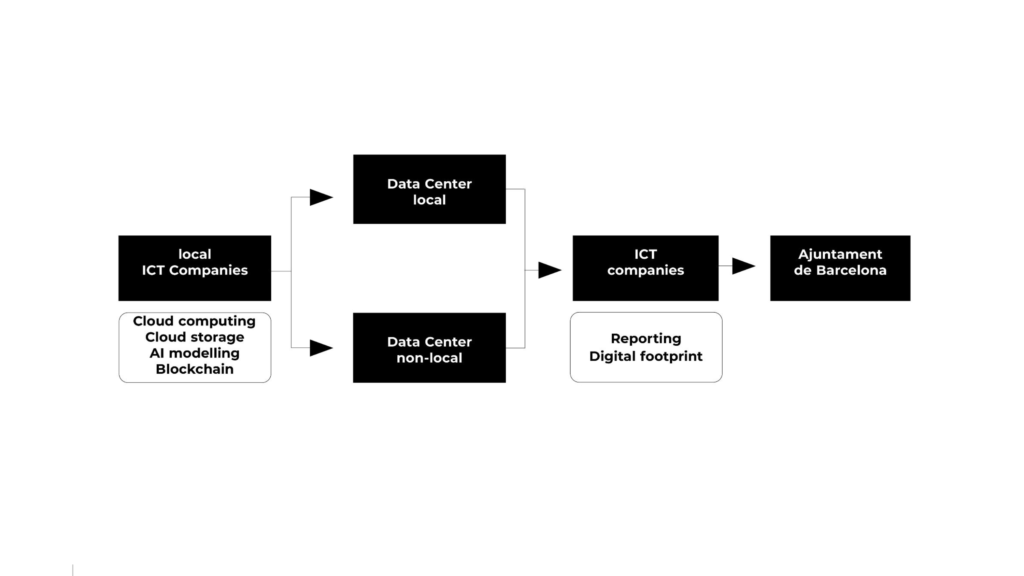
Creating a Policy Framework:
Reporting – KPI Matrix:
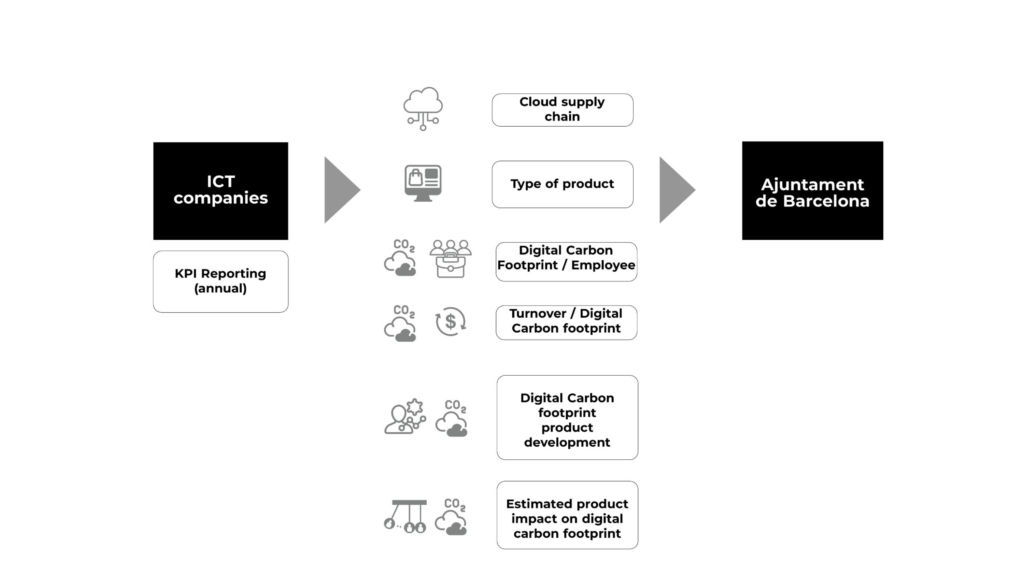
Outcome:
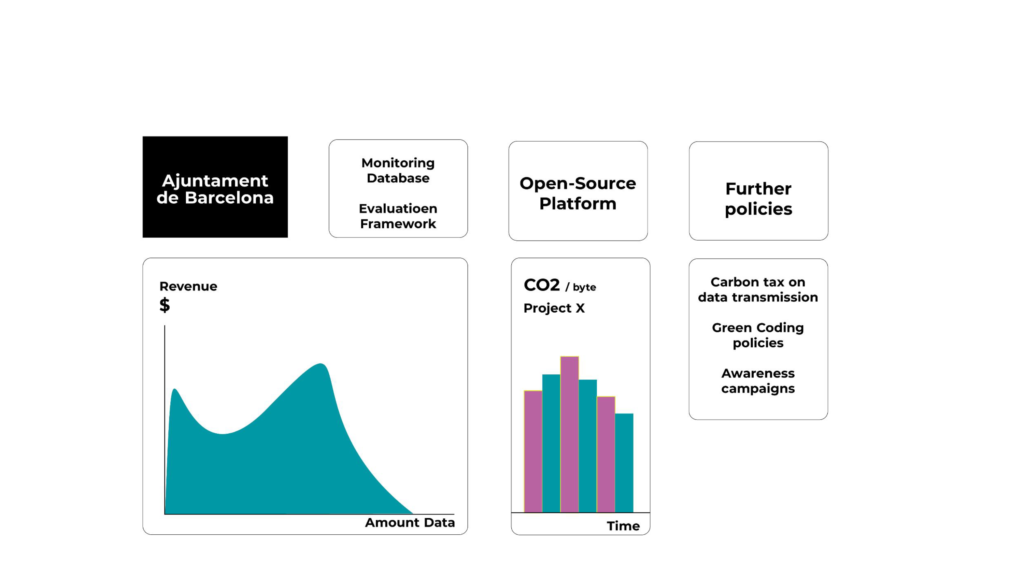
Scenario Analysis:
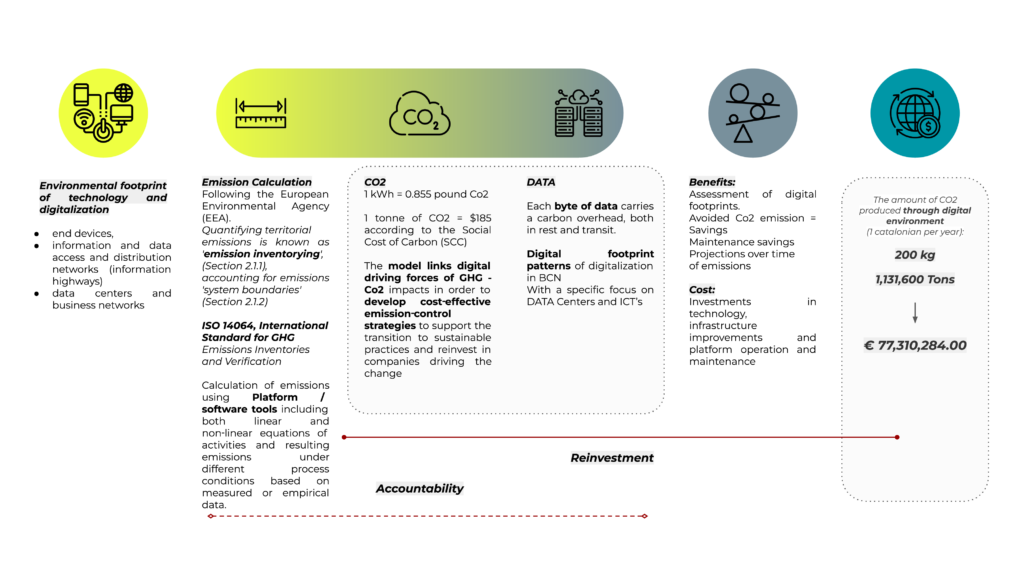
Cost and Benefit Analysis:
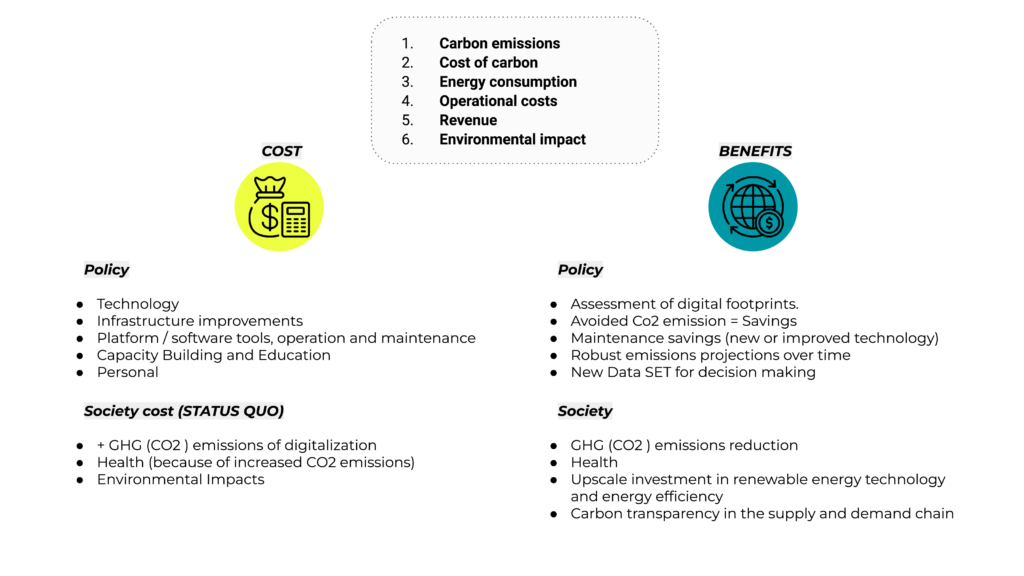
Broader, global vision
Barcelona as a pioneer in digital carbon footprint accountability in a global scene, that would be example for other cities in re-defining sustainability of 21st century.

